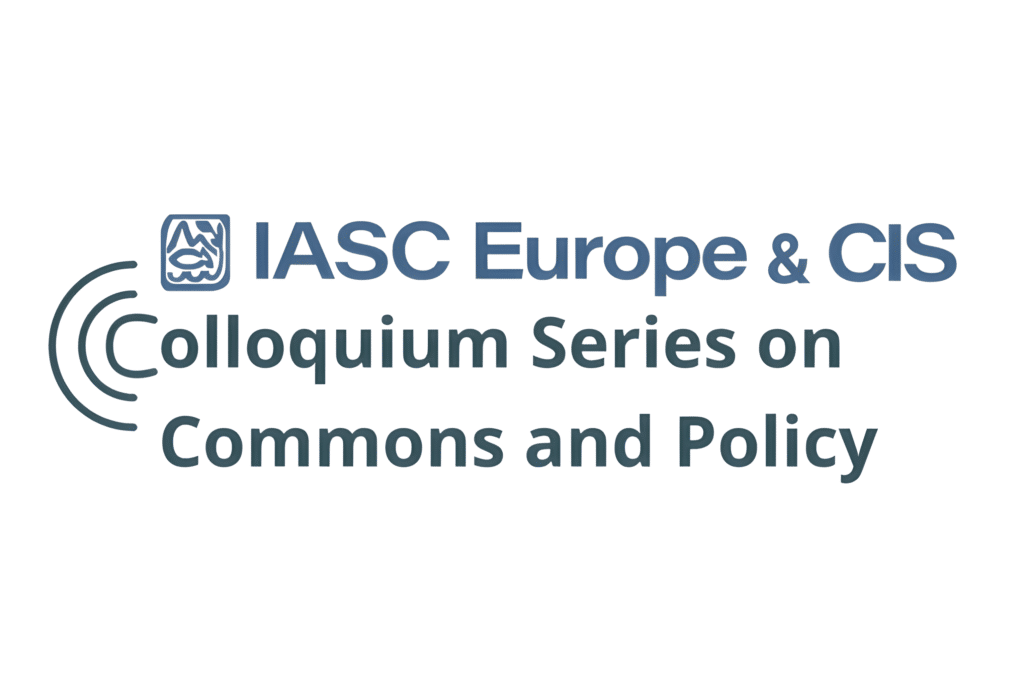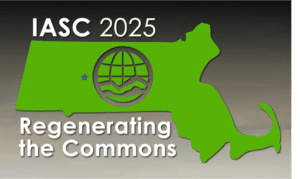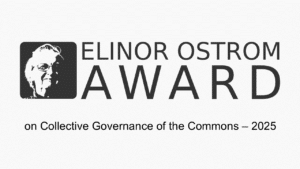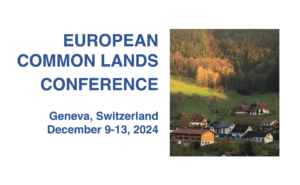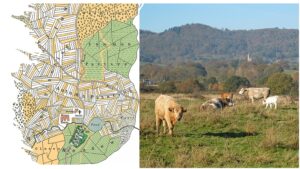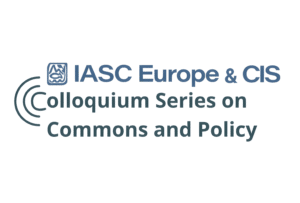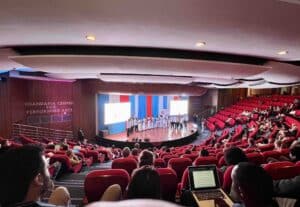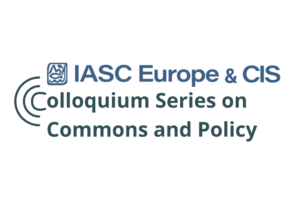Based on the experience of the 1st and 2nd IASC Europe & CIS Colloquium Series on Commons and Policy, in 2024, the Regional Chapter of IASC Europe & CIS hosts the next colloquium series featuring selected presentations and plenary sessions.
Thematically, the presentations within the series will be dedicated to policy issues related to the commons and bringing the commons knowledge, policy, and practice closer in Europe & CIS and beyond.
IASC Europe & CIS is dedicated to supporting the communication among IASC members to facilitate content-based exchange and cross-disciplinary networking.
The sub-theme of the colloquium series will be dedicated to the pressing issues related to various crises we are facing around the world. We are particularly interested in understanding the challenges and opportunities these various crises present for the commons (e.g., crises related to climate, biodiversity, migration, poverty, health, energy, etc). In addition to the topics that are specific to individual presentations, we would like to discuss the following overarching questions in the plenary sessions:
– How commons are affected by the crises directly or indirectly, reflecting historical and institutional change?
– What are the policy implications and what opportunities exist to overcome various crises through the lens of the commons?
– How can the commons scholarship and practice provide lessons for improving the societal resilience to cope with the crises?
The table below will be gradually updated to provide more detailed information on speakers and topics for each date. The meetings will take place online on Fridays from 13:00 to 14:30 CET.
The IASC Europe & CIS Colloquium Series on Commons and Policy are jointly founded and organized by the Institute of Social Anthropology, University of Bern, Switzerland and the Chair for Environmental Sociology, Martin Luther University Halle-Wittenberg, Germany. For joining the meetings, contact Tobias Haller at tobias.haller@unibe.ch and Ilkhom Soliev at ilkhom.soliev@soziologie.uni-halle.de. Information with the meeting link will also follow via direct communication to members (we also recommend checking if your membership is still valid). If you are not a member, see the information on how to become one and benefits here.
Date
Speaker(s)
Presentation
April 19, 2024
Lisa Francesca Rail
University of Vienna, Austria
Claiming the commons’ value in the context of de-valuation, and the ambivalent role of the state in recognizing it (ethnographic case study from Austria)
April 26, 2024
Iuliia Eremenko
University of Warsaw, Poland
Local experts in world heritage cities: Understanding their role in polycentric governance of heritage sites in Poland
May 3, 2024
Bidisha Banerji
Amity University, India
Discussant: Ben Elder
Royal Institution of Chartered Surveyors (RICS)
Urban green commons and impact on housing valuations
May 10, 2024
Lisa Francesca Rail
Iuliia Eremenko
Bidisha Banerji
Plenary session 1: Cross-cutting themes in the context of commons and crises
May 17, 2024
Ramya Chandrasekhar
The National Centre for Scientific Research (CNRS), France
Towards critical openness and relational data commons: Proposals for governance of open data
May 24, 2024
Alex Pazaitis
Tallinn University of Technology, Estonia
Challenging contemporary societal challenges: Commoning practices for technology, value, and care
May 31, 2024
Shann Turnbull
International Institute for Self-governance, Australia
Susan Wanmer
Byron Bay Business College, Australia
Extending the work of Ostrom in the context of the global commons
June 7, 2024
Ramya Chandrasekhar (tbd)
Shann Turnbull
Susan Wanmer
Alex Pazaitis
Plenary session 2: Cross-cutting themes in the context of commons and crises

